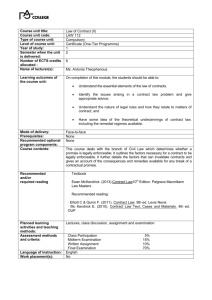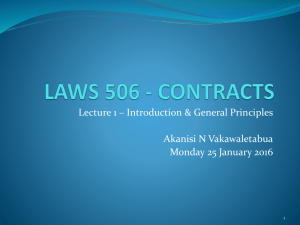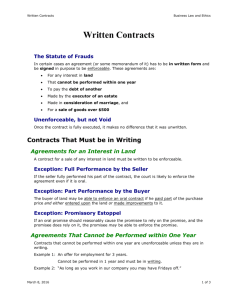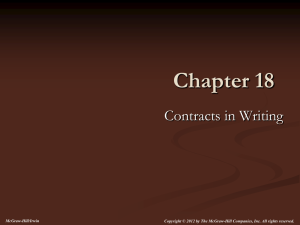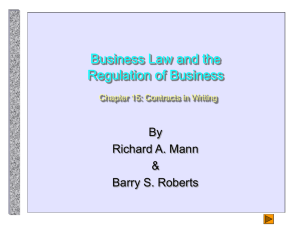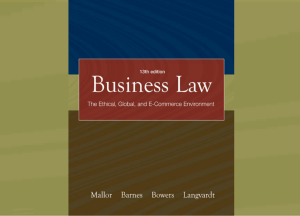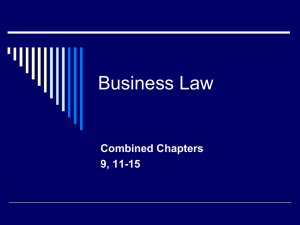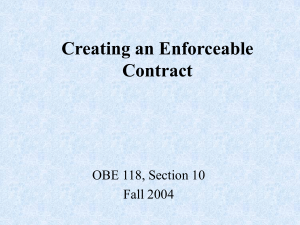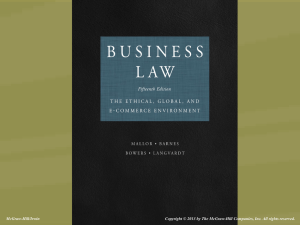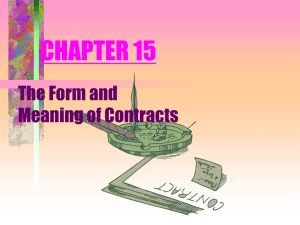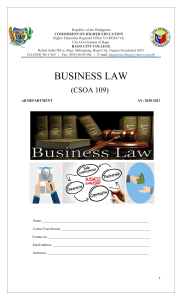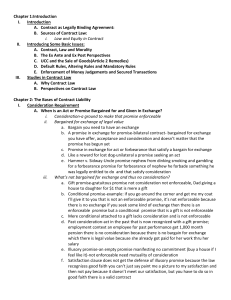Chapter 7 CONTRACT PROVISIONS
advertisement
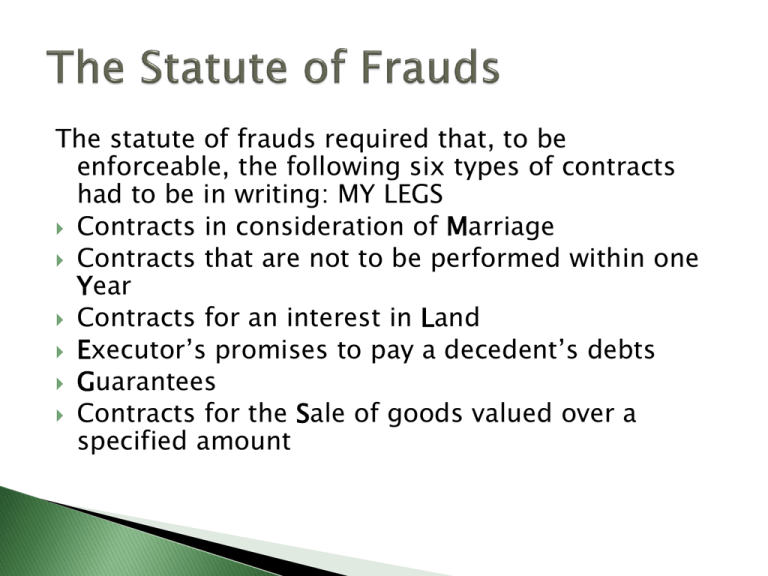
The statute of frauds required that, to be enforceable, the following six types of contracts had to be in writing: MY LEGS Contracts in consideration of Marriage Contracts that are not to be performed within one Year Contracts for an interest in Land Executor’s promises to pay a decedent’s debts Guarantees Contracts for the Sale of goods valued over a specified amount The concept that any promise given in consideration of marriage must be in writing still exists. This usually takes the form of an antenuptial, (or prenuptial) agreement. An prenuptual agreement is a contract between the intended bride and groom specifying each one’s property rights in case of death or divorce. Is there any possible way in which the contract could be fully performed within one year? Also note that for determining the applicability of the statute, the period starts from the day of the agreement, not the date on which the performance is to start. To be enforceable, every contract for an interest in real estate must be in writing. Contracts for the sale of land are also permanently recorded in governmental offices in the county where the property is located. This insures that the title to the property can be traced and determined. This situation arises most commonly in estate administration, and thus is best addressed in any gifts, wills and trusts classes you may take. A guarantee is a promise to answer for the debts of another. A guarantee is also a type of formal contract. Because there is, essentially, no consideration for this promise, we must establish “constructive” consideration. This provision of the Statute of Frauds has been absorbed by the Uniform Commercial Code (UCC) for most commercial contracts. The UCC, a version of which has been adopted in every jurisdiction, provides that any contract for the sale of goods valued at over $500 must be in writing to be enforceable. This is the law in California. An unconditional, absolute promise to perform. Conditions are categorized by when they create, or extinguish, the duty to perform the covenants ◦ Conditions precedent ◦ Conditions subsequent Guidelines that the courts use to interpret all contractual provisions ◦ Contractual language viewed in context of the whole ◦ Wording construed according to ordinary meaning ◦ Business terms interpreted according to business custom and usage ◦ handwriting prevails over typing, and typing prevails over mechanical printing ◦ Ambiguity construed against drafter ◦ Intent of the parties rules all Oral testimony may not be used to vary the terms of a writing
